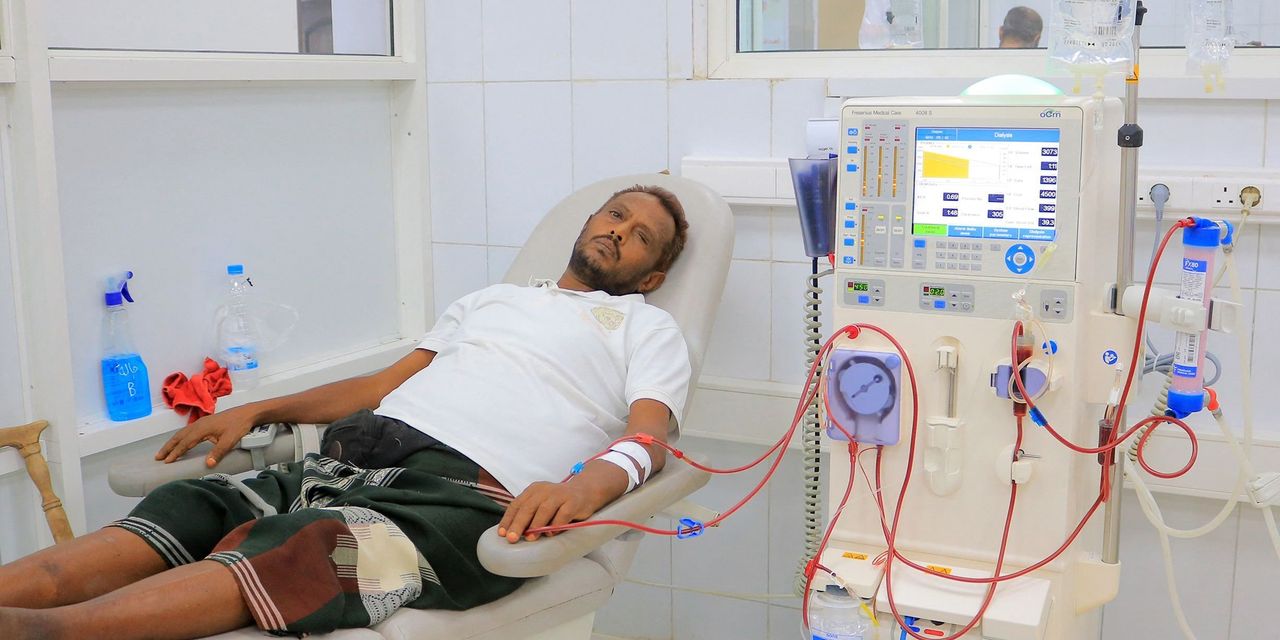Dialysis company DaVita Inc. issued a statement on Thursday in response to the news Wednesday from Novo Nordisk that its Ozempic treatment for Type 2 diabetes delayed the progression of chronic kidney disease in a trial.
The Denmark-based Novo Nordisk
NOVO.B,
said it had halted the trial because of its efficacy, sending the stocks of dialysis companies, including DaVita
DVA,
sharply lower on Wednesday.
“We’ve been closely monitoring the developments related to GLP-1s, and are excited about the potential benefits this class of drugs could have on society and patients with kidney disease,” said DaVita Chief Medical Officer Dr. Jeff Giullian in a statement.
However, he said that while it’s almost impossible to draw conclusions from the study, whose results have yet to be released, “based on the inclusion criteria for study participants, we believe there may be limited application of the FLOW study findings to the overall CKD patient population.”
That’s because patients enrolled in the study were required to have a rare combination of factors, including Type 2 diabetes, CKD and a requisite amount of proteinuria, or protein in the urine.
“DaVita estimates that fewer than 10% of all current CKD patients would have this combination of factors,” the statement said.
The trial also had a composite endpoint comprised of five separate endpoints.
“Findings on any single endpoint, or any combination thereof, could be sufficient to halt the trial. It is unknown, however, which endpoint(s) was positive so as to close the study and whether it was a cardiovascular endpoint, a kidney endpoint, or both,” DaVita said in the statement.
The full results, which Novo Nordisk said will be released in the first half of 2024, will identify which endpoint was met. If it confirms previous findings that glucagon-like peptide-1s, or GLP-1s, reduce cardiovascular mortality, it would be positive. About six times more CKD patients die of cardiovascular disease than develop the need for a kidney replacement.
Future trials will be needed to confirm the study’s findings, said Giullian.
Ozempic and Wegovy have also been approved as weight-loss drugs and have become highly popular in the U.S. The drugs, which mimic the effects of GLP-1, a gut hormone that can help control blood-sugar levels and reduce appetite, have seen shortages and competition from cheaper knockoffs ever since they were first introduced.
For more, read: The dark side of the weight-loss-drug craze: eating disorders, medication shortages, dangerous knockoffs
If their growth continues, the drugs are expected to have a profound impact on the food and beverage industries, and companies may have to adapt their product choices to address changing consumer behavior, analysts have said.
Read now: As Ozempic/Wegovy frenzy continues, Morgan Stanley lifts forecasts for weight-loss drugs to $77 billion
DaVita’s stock fell 4% Thursday, bringing its week-to-date losses to 19%. The S&P 500
SPX
has gained 1.6% in same period.
Read the full article here










